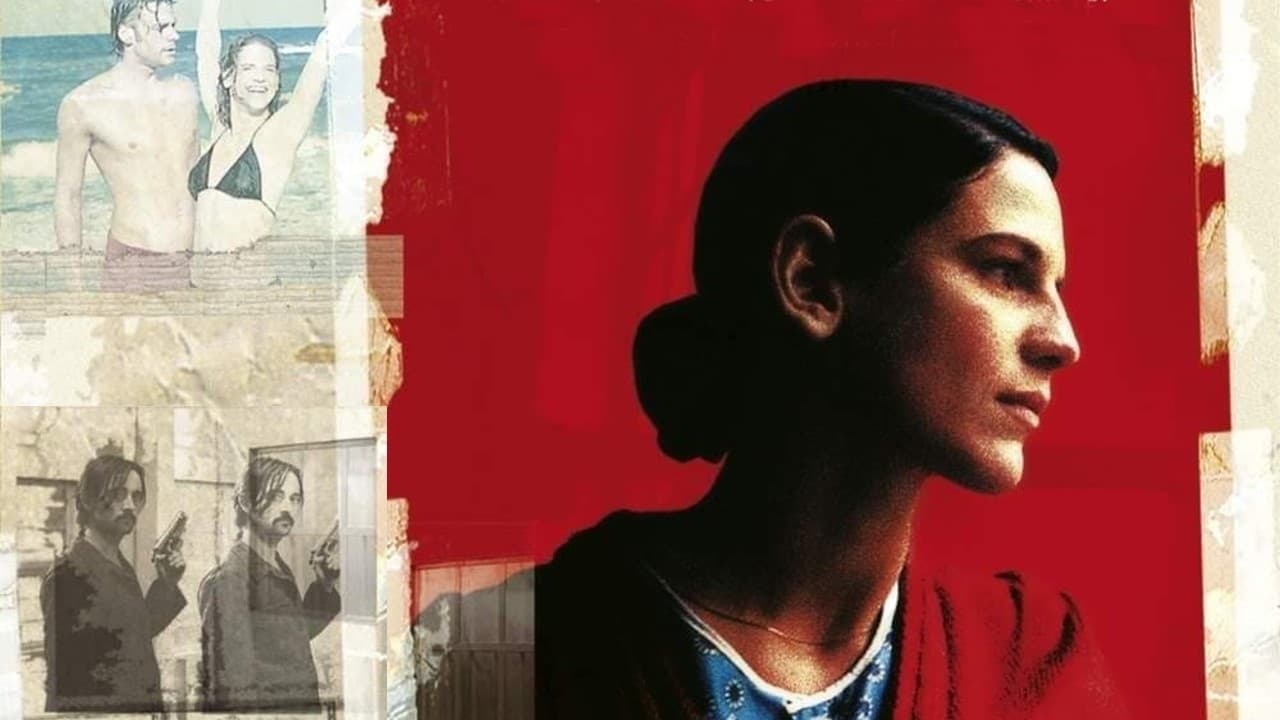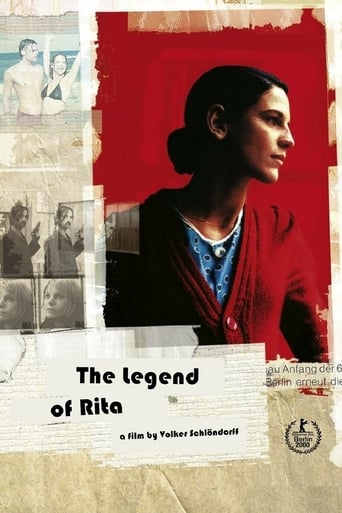



Too much of everything
There are moments in this movie where the great movie it could've been peek out... They're fleeting, here, but they're worth savoring, and they happen often enough to make it worth your while.
View MoreThere are moments that feel comical, some horrific, and some downright inspiring but the tonal shifts hardly matter as the end results come to a film that's perfect for this time.
View MoreGreat movie. Not sure what people expected but I found it highly entertaining.
View MoreTHE LEGEND OF RITA by director Volker Schlöndorff offers an intriguing look at East Germany's role in the international revolutionary political movements of the 1970's. The film has an authentic feel in that it is not chock-full of clichéd characters that seem to populate these types of films. Rita is a member of a radical underground group that evolved from the American Civil Rights/Black Power/Anti-Vietnam movements of the 1960's. Although initially begun on the college campus of Berkeley California, within a decade these political and cultural movements morphed into lawless gangs which spread worldwide by the early 1970's. Their belief was that the system of Capitalism was systemically flawed, and therefore the criminal and judicial system was null and void. Schlondorff highlights the idealistic tendencies of the group members, and even seems to romanticize the organizations which supported them. Rita and her cohorts are nearly idealistic to a fault, and harbor an unusual or misplaced admiration for The Peoples' State. It's almost a running gag in the film that no one who lives in East Germany can believe that anyone would chose to live there. Although for a variety of reasons Socialism clearly was usurped by Capitalism by the early 90's, Volker Schlondorff has crafted a film that is a kind of a thoughtful advocacy for the positive aspects of a more collective political system. THE LEGEND OF RITA is a terrific film of the Thriller Genre, yet perceptively makes political points without becoming a polemic.
View MoreThis is not the strongest film by Schlondorff, but it is very entertaining nonetheless. Rita is a woman of a thousand disguises: some adopted for her terrorist roles in the West, some given to her by her Stasi handler in the East, and some adopted to cope with the jarring dissonances that people experienced under Communism.The time is never right for Rita. She is told that since the DDR is about to sign a pact against terrorism, she and her comrades are excess baggage. When her boyfriend announces he's going to the USSR to work, she has to tell him she can't go with him, as she'd be unsafe there. Plane tickets to Beirut are offered to them: Rita refuses but Andreas and the others go (anything to get away from the socialist nightmare). Rita's refusal saves her life, of course.I found the moral questions that a politically engaged citizen of either of the former two Germanies had to face were brought out better in The Lost Honor of Katharina Blum, but Rita has many lovely moments.
View More"The Legend of Rita" follows the activities of a young female idealist who runs with a small band of second rate terrorists in West Germany just prior to the end of the Cold War, goes straight, and hides under assumed identities (the legend). A well crafted, technically good Euroflick, "...Rita", equally split between character and story, puts the audience in the awkward position of having to root for a terrorist with only a marginally interesting story to tell. Slightly above par, "...Rita" will appeal most to cinema buffs and those into Euroflicks.
View MoreWhat the director has done with this picture is make the history of the DDR (Deutche Demokratishe Republik - The German Democratic Republic)with the protagonist a stand-in for the state. Certainly she is the little orphan Annie of Marxism-Leninism, and we see the DDR though her eyes (which may explain why the sets are so clean.) In a possible defence of her radicalism, may I say that the Bundesrepublik Deutchland(West Germany)was very much a conservative, yet apolitical state for the first 20 years of it's existence. The WW II generation was silent, the (initally) radical labor unions of 1946 were tamped down with help from the CIA and the AFL-CIO. German youth was ambivalent towards America and the West because of the occupation troops and the cheasy bar culture they brought with them. You can't live in the `50's forever, and when the 1960's wafted in, people like Rita were silently raging for change. Unfortunately for her, Mao's dictum of "political power grows from the barrel of a gun" was more appealing than other forms of protest or makig a counterculture. The rest is the plot.The Stasi paper-shredding scene near the end actually happened; the BDR is still sorting the fragments. And yes, Trabants were that cheap.
View More